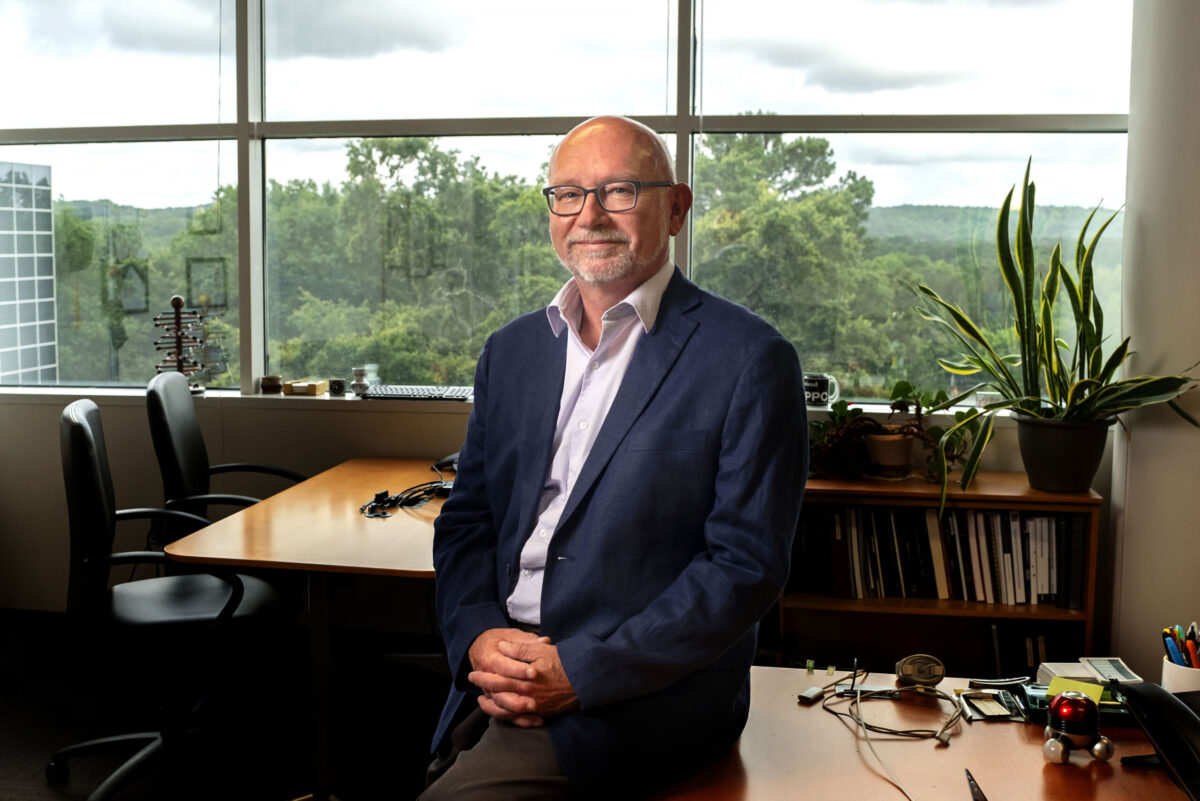New Dean of School of Data Science and Society
Posted on July 1, 2022
Stanley (Stan) Ahalt. Photo: UNC/Jon Gardiner ’98
Stanley C. Ahalt has been appointed inaugural dean of Carolina’s new School of Data Science and Society, which launches this fall and will use data to solve problems and help improve lives in North Carolina and across the globe.
The school, a cross-campus effort that was years in the making, will welcome its first class of graduates in 2026 and is expected to become a leading school of data science in the country.
“The school is going to let us deliver curriculum to students that will prepare them for the workforce in data science in new ways,” said Provost and Chief Academic Officer Chris Clemens. “And I think it’s really important for students to have this data science curriculum be visible and prominent so they know how to engage with it.”
Clemens, also the Jaroslav Folda Distinguished Professor of Physics and Astronomy, said the University is already doing a tremendous amount of research in data science but the new school will “make sure we take that research and figure out how to apply it to important problems in society, which is an interesting concept.”
According to the Bureau of Labor Statistics, overall employment of statisticians and mathematicians is projected to grow 33 percent from 2020 to 2030, much faster than the average for all occupations. In 2021, the median pay for statisticians was $95,570, the Bureau reports.
Carolina already offers a minor in data science through the College of Arts & Sciences. Academic programming is still in development for the new undergraduate program, but graduate programs are also on the horizon, including an online master’s degree program in applied data science.
Clemens said professors will be hired to ensure the University has the appropriate people on board to position the new School of Data Science and Society to become a leader among the country’s data science schools, adding Ahalt is the right person to lead the school.
“Being one part of how the University is fostering a problem-solving hub and preparing our students for the future is thrilling and humbling,” Ahalt said. “This program invites our students to gain hands-on experience in gathering data, analyzing it and then applying data science best practices to solve real-world problems. The School also creates additional space for engaging cross-disciplinary collaboration for our faculty. I cannot think of a better place than Carolina to examine and help solve some of society’s biggest challenges using data science.”
Before assuming his post as dean in the School of Data Science and Society, Ahalt was director of the Renaissance Computing Institute, a collaboration among Carolina, North Carolina State University and Duke University.
Since joining the Renaissance Computing Institute in 2009, Alhalt has advanced data science at Carolina by integrating it into the curriculum in the College of Arts & Sciences and helped launch the Carolina Health Informatics Program in the School of Information and Library Science. He has served on many former data science initiative planning committees and the current School of Data Science and Society working group. In addition, he helped launch the National Consortium for Data Science, a public-private partnership to support a 21st century, data-driven economy and iRODS, open-source data management software.
Ahalt is well-versed in working across teams. He also serves as a professor in Carolina’s College of Arts & Science’s computer science department and as associate director of informatics and data science in the North Carolina Translational and Clinical Sciences Institute. He is passionate about applying data science to address pressing challenges in health care and in environmental and judicial matters. He helped secure $34.5 million in funding for complex data science grants that position Carolina as a leader in the data science field.
Before coming to Carolina, Ahalt served as executive director of the Ohio Supercomputer Center from 2003 to 2009 and as a professor in the department of electrical and computer engineering at The Ohio State University for more than two decades.
He holds a doctorate in electrical and computer engineering from Clemson University, as well as a master’s and a bachelor’s in electrical engineering from Virginia Tech.
